第63章 THE MERRY WIDOWS(6)
Boursier, he said, had to get up before his wife that morning, rising at six o'clock.His rising did not wake his wife, and, perhaps humorously resenting her lazy torpor, he found a piece of charcoal and decorated her countenance with a black moustache.It was true that Mme Boursier showed some petulance over her husband's prank when she got down at eight o'clock, but her ill-humour did not last long.Her husband caressed and petted her, and before long the wife joined her merry-minded husband in laughing over the joke against her.That, said Maitre Couture, that mutual laughter and kindness, seemed a strange preliminary to the supposed poisoning episode of two hours or so later.
The truth of the matter was that Boursier carried the germ of death in his own body.What enemy had he made? What vengeance had he incurred? Maitre Couture reminded the jury of Boursier's poor physical condition, of his stoutness, of the shortness of his neck.He brought forward Toupie's evidence of Boursier's illness of the previous year, alike in symptoms and in the sufferings of the invalid to that which proved fatalon Tuesday the 30th of June.Then Maitre Couture proceeded to tear the medical evidence to pieces, and returned to the point that Mme Boursier had been sleeping so profoundly, so serenely, on the morning of her supposed contemplated murder that the prank played on her by her intended victim had not disturbed her.
The President's address then followed.The jury retired, and returned with a verdict of Not guilty.''
On this M.Hardouin discharged the accused, improving the occasion with a homily which, considering the ordeal that Mme Boursier had had to endure through so many months, and that might have been considered punishment enough, may be quoted merely as a fine specimen of salting the wound:
Veuve Boursier,'' said he, you are about to recover that liberty which suspicions of the gravest nature have caused you to lose.The jury declares you not guilty of the crime imputed to you.It is to be hoped that you will find a like absolution in the court of your own conscience.But do not ever forget that the cause of your unhappiness and of the dishonour which, it may be, covers your name was the disorder of your ways and the violation of the most sacred obligations.It is to be hoped that your conduct to come may efface the shame of your conduct in the past, and that repentance may restore the honour you have lost.''
Now we come, as the gentleman with the crimson handkerchief coyly showing between dress waistcoat and shirt might have said, waving his pointer as the canvas of the diorama rumbled on its rollers, to Riguepeu!
Some twenty years have elapsed since the Veuve Boursier stumbled from the stand of the accused in the Assize Court of the Seine, acquitted of the poisoning of her grocer husband, but convicted of a moral flaw which may (or may not) have rather diminished thereafter the turnover of the epicerie in the Rue de la Paix.One hopes that her punishment finished with her acquittal, and that the mood of the mob, as apt as a flying straw to veer for a zephyr as for a whirlwind, swung to her favour from mere revulsion on her escape from the scaffold.The one thing is as likely asthe other.Didn't the heavy man of the fit-up show, eighteen months after his conviction for rape (the lapse of time being occupied in paying the penalty), return as an actor to the scene of his delinquency to find himself, not, as he expected, pelted with dead cats and decaying vegetables, but cheered to the echo?So may it have been with the Veuve Boursier.
Though in 1844, the year in which the poison trial at Auch was opened, four years had passed since the conviction of Mme Lafarge at Tulle, controversy on the latter case still was rife throughout France.The two cases were linked, not only in the minds of the lay public, but through close analogy in the idea of lawyers and experts in medical jurisprudence.From her prison cell Marie Lafarge watched the progress of the trial in Gascony.And when its result was published one may be sure she shed a tear or two.
But to Riguepeu...
You will not find it on anything but the biggest-scale maps.It is an inconsiderable town a few miles from Vic-Fezensac, a town not much bigger than itself and some twenty kilometres from Auch, which is the capital of the department of Gers.You may take it that Riguepeu lies in the heart of the Armagnac district.
Some little distance from Riguepeu itself, on the top of a rise, stood the Chateau Philibert, a one-floored house with red tiles and green shutters.Not much of a chateau, it was also called locally La Maison de Madame.It belonged in 1843 to Henri Lacoste, together with considerable land about it.It was reckoned that Lacoste, with the land and other belongings, was worth anything between 600,000 and 700,000 francs.
Henri had become rich late in life.The house and the domain had been left him by his brother Philibert, and another brother's death had also been of some benefit to him.Becoming rich, Henri Lacoste thought it his duty to marry, and in 1839, though already sixty-six years of age, picked on a girl young enough to have been his granddaughter.
Euphemie Verges was, in fact, his grand-niece.She lived with her parents at Mazeyrolles, a small village in the foothills of the Pyrenees.Compared with Lacoste, the Verges were said to be poor.Lacoste took it on himself to look after the girl's education, having her sent at his chargesto.a convent at Tarbes.In 1841, on the 2nd of May, the marriage took place.